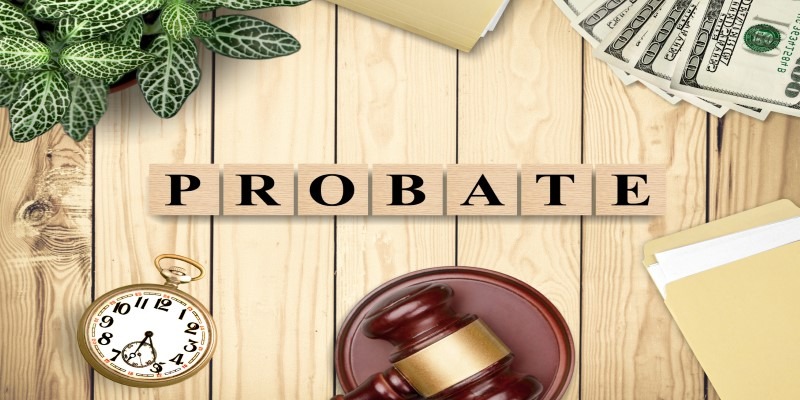Pawn shops have been around for centuries, offering people a way to buy and sell items ranging from jewelry to electronics, musical instruments, and power tools. Whether you're looking to snag a great deal or make some quick cash, pawn shops can be your go-to destination. But before you dive in, it's essential to understand how the pawn shop game works.
In this article, we'll provide you with handy tips for buying and selling at a pawn shop so you can walk in with confidence and walk out with a smile.
Tips for Buying and Selling at a Pawn Shop
Ready to dive into the world of pawn shops? Let's explore some essential tips for both buyers and sellers to ensure your experience is a successful one.
Do Your Research Before You Go
Before you step foot in a pawn shop, it's crucial to do your homework. Start by researching the items you want to buy or sell. Check online marketplaces, such as eBay or Craigslist, to get an idea of the current prices for similar items. This will help you determine the fair market value of your item and prevent you from overpaying or underselling.
Additionally, research the pawn shop itself. Read reviews, ask for recommendations from friends or family, and make sure the shop is licensed and reputable. A reputable shop will provide fair prices and treat you with respect, ensuring a smoother transaction.
Know What You Have
Understanding the true value of your item is crucial when selling at a pawn shop. While you might have a sentimental attachment to your grandmother's antique watch, it may not hold much monetary value. On the flip side, that vintage guitar collecting dust in your closet might be worth more than you think.
Consider getting your items appraised by a professional before heading to the pawn shop. This will give you a clear idea of their worth and help you negotiate a fair price. Remember, pawn shops need to make a profit, so they'll offer you less than the item's actual value. Being informed about your item's worth will help you negotiate a better deal.
Clean and Present Your Items Well
In the world of pawn shops, the adage "first impressions count" holds. When you're selling items, it's imperative to ensure they are not just clean but also meticulously well-maintained. Items showing signs of wear, dirt, or damage are less likely to command a favorable price.

Investing time in cleaning, polishing, or even making necessary repairs can significantly enhance the appeal of your items, potentially leading to a more lucrative offer.
Conversely, for buyers, it's crucial to recognize that well-maintained items represent a smarter investment. Before sealing the deal, scrutinize each item for any lurking flaws or defects. If you spot any issues, don't hesitate to engage in a friendly negotiation with the seller to ensure you're getting your money's worth.
Be Prepared to Negotiate
Pawn shops thrive on the art of negotiation, a skill that's vital whether you're buying or selling. If you're a seller, consider setting your initial price slightly above what you're willing to settle for, leaving some space for bargaining. For buyers, having a reasonable counteroffer prepared is key.
It's important to bear in mind that pawn shops are, at their core, businesses looking to turn a profit. Approach negotiations with politeness and respect; it can go a long way. Establishing a positive rapport with the pawnbroker not only fosters a more pleasant transaction but may also lead to a more favorable deal for you.
Understand the Terms of the Pawn

When you're pawning an item, it's important to understand the terms of the pawn. Typically, pawn shops offer a loan based on the value of your item. You'll receive cash, and the pawn shop will keep your item as collateral. The loan will have a set term, usually 30 to 90 days, and includes interest.
If you're unable to repay the loan by the due date, the pawn shop can sell your item to recoup their money. Make sure you're clear on the interest rates, due dates, and fees associated with the pawn. It's essential to read and understand the pawn ticket you receive.
Bring Proper Identification
Pawn shops are regulated businesses, and they require proper identification from anyone pawning or selling items. This is to prevent the sale of stolen goods and ensure a legitimate transaction. Be prepared to show a government-issued ID, such as a driver's license, when conducting business at a pawn shop.
Additionally, some pawn shops may ask for proof of ownership, especially for high-value items. Having receipts or other documentation that proves you own the item can speed up the process and build trust with the pawnbroker.
Be Realistic and Trust Your Instincts
Lastly, be realistic about your expectations when buying or selling at a pawn shop. If you're selling, remember that you won't receive the full value of your item – pawn shops need to make a profit, too. If you're buying, don't expect brand-new items; most items at pawn shops are pre-owned.
Trust your instincts when dealing with a pawnbroker. If something doesn't feel right or if the shop seems shady, walk away. You'll find numerous trustworthy pawn shops, so never feel obligated to engage with one that doesn't put you at ease.
Conclusion
In conclusion, pawn shops can be a valuable resource for both buyers and sellers, offering unique opportunities to find great deals or quickly turn unwanted items into cash. By following these tips, you'll be better prepared to navigate the pawn shop experience successfully.
Remember to research, know the value of your items, present them well, negotiate, understand the pawn terms, bring proper identification, and trust your instincts. With these tools in your arsenal, you can make your pawn shop visit a fruitful one. Happy pawning!




